Will Britain have to fight Russia?
New chief, Gen Sir Patrick Sanders, says British Army must be capable of winning wars on land
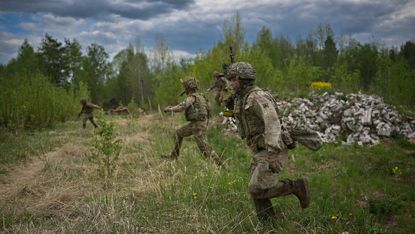
Britain must prepare “to fight in Europe once again”, the new head of the Army has warned.
General Sir Patrick Sanders, who took over as chief of the general staff last week, “issued a rallying cry to troops – telling them they need to be ready to face Russia on the battlefield”, said the BBC.
In an internal message, seen by the broadcaster, Sanders said the Ukraine war showed the need to “protect the UK and be ready to fight and win wars on land”. There is a “burning imperative to forge an Army capable of fighting alongside our allies and defeating Russia in battle”, he added.
Subscribe to The Week
Escape your echo chamber. Get the facts behind the news, plus analysis from multiple perspectives.

Sign up for The Week's Free Newsletters
From our morning news briefing to a weekly Good News Newsletter, get the best of The Week delivered directly to your inbox.
From our morning news briefing to a weekly Good News Newsletter, get the best of The Week delivered directly to your inbox.
Slashing troops
Russia’s invasion of Ukraine in February and the continued conflict has “changed the outlook and context for the Army, which faces cuts to the workforce in the coming years”, said the BBC.
The invasion “sparked a major push for increased defence spending” in the UK after last year’s Integrated Review “slashed troop numbers by 10,000, bringing the Army to the smallest size in its history, at 72,500”, said The Telegraph.
The Daily Express said there were now “serious questions” about how Britain would “actually fare in warfare”, as the country, “along with the US, France and other Western powers, has, over time, whittled down its defensive and, of course, attacking capabilities”.
The paper pointed to comments from Alex Vershinin, a retired US lieutenant colonel and war-gaming expert, who has warned that the West also lacks the necessary manufacturing capacity to produce the ammunition required for a conflict with Russia. “The winner in a prolonged war between two near-peer powers is still based on which side has the strongest industrial base,” he wrote in a commentary for the Royal United Services Institute last week.
Sign up for Today's Best Articles in your inbox
A free daily email with the biggest news stories of the day – and the best features from TheWeek.com
Vershinin noted that in a “recent war game involving US, UK and French forces, UK forces exhausted national stockpiles of critical ammunition after eight days”.
Steeling for a long war
In The Sunday Times yesterday, Boris Johnson said that “we need to steel ourselves for a long war” in Ukraine. The West must ensure Kyiv has enough equipment, funding and training so Ukrainians can defend their country, he said. “In so doing, we and our allies will be protecting our own security as much as Ukraine’s.”
It comes after Johnson paid a second “surprise visit” to Kyiv at the end of last week “in another strong show of support for Ukraine”, said Politico. The UK prime minister and Ukrainian President Volodymyr Zelenskyy have become “firm” allies since the invasion, said the site.
Although the UK government has been clear that it will not be involved directly in the conflict, it has provided a range of economic, humanitarian and defensive military assistance. On Friday, Johnson extended the offer of an expanded training programme, in which British instructors plan to work with Ukrainian forces “with the potential to train up to 10,000 soldiers every 120 days”.
The risk of escalation
Nato, of which the UK is a founding member, has echoed Johnson’s sentiment about a long war ahead. In an interview with German newspaper Bild, Secretary General Jens Stoltenberg said: “We must prepare for the fact that it could take years. We must not let up in supporting Ukraine.”
But defence planners across Nato are also “reassessing Moscow’s military might in their contingency plans in the unlikely event of a conventional war between the alliance and Russia”, said Foreign Policy, citing multiple current and former defence officials.
Describing relations between Nato and Russia as the “most precarious” in the post-Cold War era, the magazine said some analysts “feel it is time to start drawing preliminary conclusions for what a Nato-Russia conflict might look like, in the event that the Ukraine conflict spills into alliance territory”.
Andrea Kendall-Taylor, a former senior US intelligence official now with the Center for a New American Security think tank, said this was “prudent” as the “risk of escalation still remains”.
Indeed, Gen Sanders told British troops he is the first chief of the general staff since 1941 to take command of the Army “in the shadow of a land war in Europe involving a continental power”. He said: “Russia’s invasion of Ukraine underlines our core purpose to protect the UK by being ready to fight and win wars on land.”
One defence source told the BBC that the tone of Sanders’ message was “unsurprising”, and that while all armies train to fight, the threat has clearly changed.
Create an account with the same email registered to your subscription to unlock access.
-
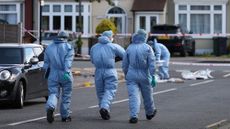 Hainault sword attack: police hunt for motive
Hainault sword attack: police hunt for motiveSpeed Read Mental health is key line of inquiry, as detectives prepare to interview suspect
By Arion McNicoll, The Week UK Published
-
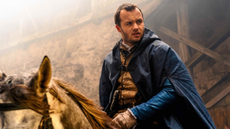 Shardlake: a 'tightly plotted, gorgeously atmospheric piece of television'
Shardlake: a 'tightly plotted, gorgeously atmospheric piece of television'The Week Recommends Arthur Hughes captivates in this 'eminently watchable' Tudor murder mystery
By Irenie Forshaw, The Week UK Published
-
 Major League Baseball is facing an epidemic of pitcher's injuries
Major League Baseball is facing an epidemic of pitcher's injuriesUnder the Radar Many insiders are blaming the pitch clock for the rise in injuries — but the league is not so sure
By Justin Klawans, The Week US Published
-
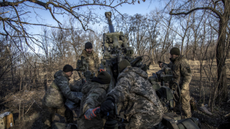 Aid to Ukraine: too little, too late?
Aid to Ukraine: too little, too late?Talking Point House of Representatives finally 'met the moment' but some say it came too late
By The Week UK Published
-
 How would we know if World War Three had started?
How would we know if World War Three had started?Today's Big Question With conflicts in Ukraine, Middle East, Africa and Asia-Pacific, the 'spark' that could ignite all-out war 'already exists'
By Harriet Marsden, The Week UK Published
-
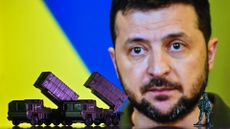 Will Iran attack hinder support for Ukraine?
Will Iran attack hinder support for Ukraine?Today's Big Question Pro-Kyiv allies cry 'hypocrisy' and 'double standards' even as the US readies new support package
By Elliott Goat, The Week UK Published
-
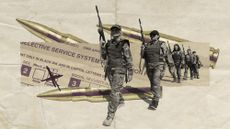 The issue of women and conscription
The issue of women and conscriptionUnder the radar Ukraine military adviser hints at widening draft to women, as other countries weigh defence options amid global insecurity
By Harriet Marsden, The Week UK Published
-
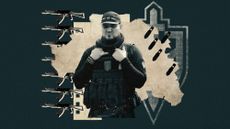 Why is Ukraine backing far-right militias in Russia?
Why is Ukraine backing far-right militias in Russia?Today's Big Question The role of the fighters is a 'double-edged sword' for Kyiv, say commentators
By The Week UK Published
-
 Ukraine's unconventional approach to reconstruction
Ukraine's unconventional approach to reconstructionUnder the radar Digitally savvy nation uses popular app to file compensation claims, access funds and rebuild destroyed homes
By Harriet Marsden, The Week UK Published
-
 What does victory now look like for Ukraine?
What does victory now look like for Ukraine?Today's Big Question Not losing is as important as winning as the tide turns in Russia's favour again
By Elliott Goat, The Week UK Published
-
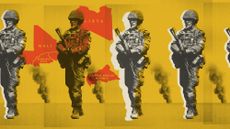 Where has the Wagner Group gone?
Where has the Wagner Group gone?Today's Big Question Kremlin takes control of Russian mercenaries after aborted mutiny and death of leadership
By Elliott Goat, The Week UK Published